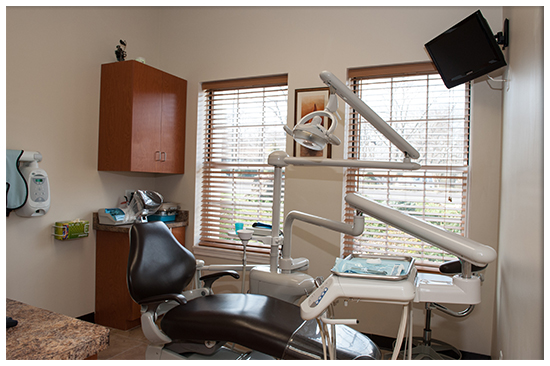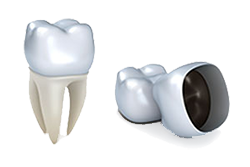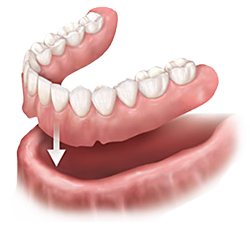Call: (732) 972-0123
General Dental Services
Dental Exam

There's nothing to fear with a dental exam. Your teeth will be visually examined for signs of plaque, tartar and tooth decay. Your gums will also be examined for puffiness or discoloration, which are signs of gum disease. A full set of dental X-rays may also be taken during your dental exam, to enable your dentist to see below the surfaces of your teeth. Dental exams typically end with a dental cleaning, to remove surface stains and buildup.
Teeth Cleaning

Ultrasonic cleaning, is a popular alternative to traditional teeth cleanings. With ultrasonic scaler (rather than a manual probe) is used to remove deposits, kill harmful microbes and eliminate bacteria around the teeth and gums through high-frequency sound waves. Many patients find ultrasonic teeth cleanings more comfortable than traditional teeth cleanings because they are quicker, quieter with minimal discomfort.
A deep cleaning may be recommended if excessive plaque and tartar deposits have developed below the gum line. Deep cleanings, also known as scaling and root planing, involve a two-part process: first, the stubborn deposits are removed, and then the root surfaces are smoothened. A deep cleaning helps prevent periodontal disease and restores gum tissues to a healthy state.
Single Tooth Sealants
Oral Cancer Screening
Oral cancer affects nearly 35,000 Americans every year. The keys to surviving oral cancer are early detection and early treatment. This starts with a regular oral cancer screening – at least once every six months. An oral cancer screening takes just minutes, is pain-free and can be performed during regular dental exams
Dental Crowns

Dental Bridges
Dental bridges have been used for centuries to replace missing teeth. Today, dental bridges are still considered one of the most durable, conservative and cost-effective options for bridging the gap between a missing tooth and surrounding teeth. Comprised of two anchoring teeth and a replacement tooth, dental bridges help prevent surrounding teeth from drifting out of position, improve chewing and speaking, and help keep your natural face shape in tact.
There are three types of dental bridges: 1) traditional dental bridges, 2) cantilever dental bridges, and 3) Maryland bridges. Traditional bridges have either dental crowns or dental implants on either side of the missing tooth, plus a replacement tooth, which is held in place by a post-like structure called a dental abutment. Cantilever dental bridges are used in cases where there are surrounding teeth only on one side of the missing tooth. Maryland bridges are made of a specialized resin that is cemented to a metal framework and cemented to the enamel of surrounding teeth.
Dental bridges typically take 2-3 weeks to complete and are less invasive than other options, such as dental implants. With good oral hygiene and regular dental visits, dental bridges can last up to 30 years.
Dentures

The process of getting dentures may take a few months and several dental visits. In some cases, however, same-day dentures are also possible. With same-day dentures, the dentures are created right in the dentist's office instead of at an offsite laboratory. Same-day dentures aren't for everyone, though. If your dentures require a lot of customization, same-day dentures may not be right for you.
Just as with your natural teeth, dentures require daily maintenance. With regular wear and tear, your dentures can last 5-7 years. During that time, you may need periodic denture relines to accommodate changes in the contours of your mouth. Regular denture relines involve resurfacing the base to ensure that your dentures fit and function perfectly. If you break your dentures, it's critical to bring them to your dentist for professional denture repair. Home denture repair kits can cause more damage and be even more costly to fix.
Root Canals (Endodontics)
Root canals get a bad wrap. But don't believe the rumors; the dreaded root canal isn't dreadful at all! Root canals are needed when either decay or an injury infects the inner tooth (the pulp). In the earliest stages of infection, you may not feel any pain at all. But when it progresses, you could have a toothache and swelling, or a dental abscess might form. Root canals remove the infection and prevent it from spreading. Thanks to rotary root canals, this process is faster, more comfortable and, in many cases, more thorough than conventional root canals. Pulp capping is an alternative to root canals that are used when the infection has yet to penetrate the pulp. Pulp capping can also prevent a large dental filling from getting too close to the nerve.
Extractions
In the unfortunate event that a tooth needs to be removed, extractions are routinely performed by our caring team and done with your comfort as our priority.
Mouthguards: Night and Sport
A mouthguard, or orthotic, is frequently used to treat dental problems like TMD, snoring, sleep apnea — and to protect your teeth during sports. Every mouthguard is carefully crafted by a dental lab based on impressions we take of your mouth and teeth, then precisely configured to fit your teeth and line up your bite. Best of all, it does all this with minimal impact on your ability to eat and speak.
Like your mouth itself, mouthguards need routine maintenance. If you have any questions about your mouthguard, or are experiencing any discomfort from wearing it, please give us a call.
Dental Fillings
If you've been told you need a dental filling, you're not alone: 92% of Americans have had at least one cavity. Dental fillings are the tried-and-true treatment for treating cavities – and they come in a variety of options to suit every need. Dental fillings can be made of silver amalgam, composite, porcelain and even gold. Amalgam fillings have been used by dentists for more than a century and are still the most common and cost-effective type of dental filling. But composite fillings, which are made of a tooth-colored plastic and glass composite, are quickly becoming the preferred dental filling due to their natural appearance and durability. The type of dental filling used is determined by a number of factors, including size and location of the cavity, as well as your budget.
White Fillings
If your silver fillings make you feel self conscious when you smile, or it's simply time to replace them, consider white fillings. White fillings are just as durable as they are attractive! Made of composite resin, white fillings match the natural color of your teeth and are an excellent option for small to mid-sized cavities. White fillings are strong, stain-resistant and require less removal of your tooth structure than amalgam fillings.
Gum Disease Treatment
Red, swollen gums are a red flag for one thing: gum disease. If you have the symptoms, you're not alone. More than 80% of adults have some form of gum disease. Fortunately, there are many effective and pain-free gum disease treatments. For gingivitis, the mildest form of gum disease, treatment typically involves a thorough dental cleaning, followed by daily brushing and flossing. Advanced gum disease, also known as periodontal disease, requires scaling and root planing to remove stubborn deposits below the gum line. Laser gum surgery, a new alternative to scaling and root planing, uses beams of high-speed light to remove plaque and tartar buildup. If non-surgical methods of gum disease treatment are ineffective, a gingivectomy, or periodontal surgery, may be necessary.
Nitrous Oxide
Ever wish you could sail through dental visits without anxiety or fear? Would you rather endure an agonizing toothache than go to the dentist? Answering “yes” to these questions could mean that you're a perfect candidate for sedation dentistry. With sedation dentistry, you can forget about fear and focus on pure relaxation.
There are different levels of sedation to accommodate every patient. Minimal sedation involves inhaling nitrous oxide (“laughing gas”). Nitrous oxide helps you relax and wears off quickly.
